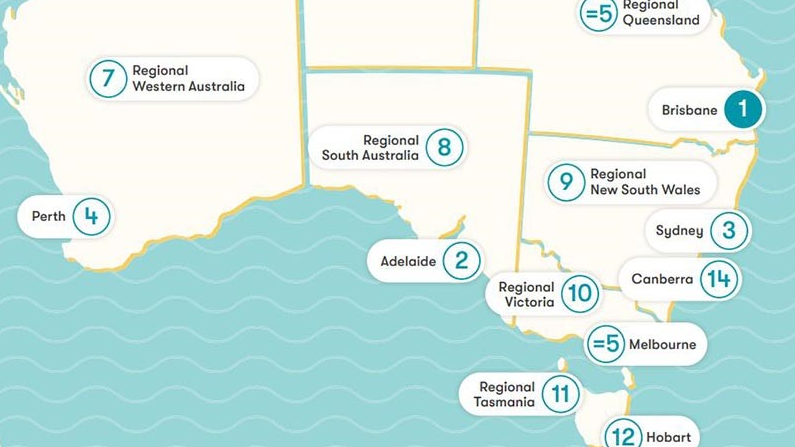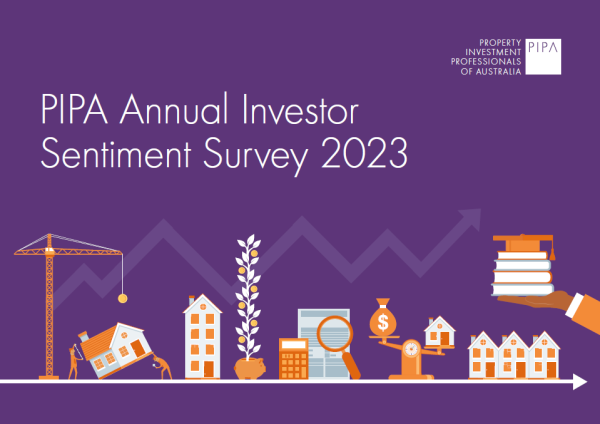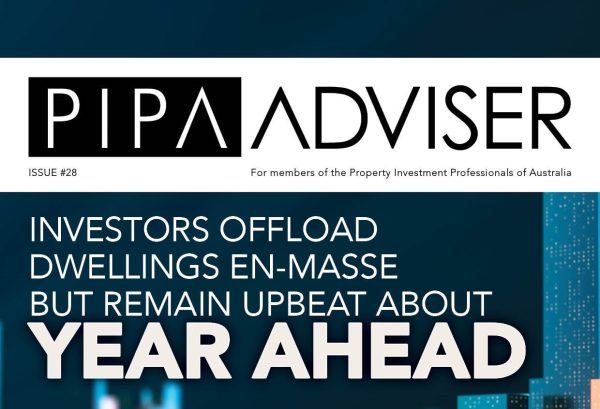Brokers react to APRA home lending restrictions call
Oct 2021Karen Millers
Categories
Location ReportsMedia releasesNational market updatesPersonal advisersPIPA AdviserPIPA Annual Investor Sentiment SurveysPIPA Member ProfilesPIPA video updatesPIPA webinarsPodcastsProperty advisersProperty newsLatest Articles
‘More chance of winning lotto’ than housing targets being met
PIPA Member Profile | Amanda Turner, Opulence Property
The news of amended APRA lending regulations hit the industry yesterday morning, with brokers learning that new loans will now be assessed at a serviceability rate 0.5% higher than before.
The changes had been in the offing for several weeks, with Treasurer Josh Frydenberg giving the nod to APRA two weeks ago that risky lending needed to be constrained.
On the back of such a seismic change to the way that brokers and property professionals do business, Australian Broker took a temperature check on the industry to find out what effect the APRA news will have going forward.
“Everybody saw this coming,” said Julian Fadini, founder of Prpty360. “They’re protecting the cash rate. We want people to be moving forward with as much confidence as we can during this challenging time.”
“The last thing Australia needs at the moment is instability in the property market given the overarching challenges that we have in the economy. With trying to restart and get people back to work, businesses reopening and the rest of it, the last thing that we would need to ruin people’s confidence.”
“If there was instability, it would impact confidence about the value of their houses, so any step towards making the property market and the lending market more robust and a safer place for owner-occupiers and investors is a step in the right direction. We don’t want anything that undermines that confidence in the property market as we come out of the recovery.”
APRA lending rules changes send shockwaves through industry
The news was expected, but still caused a little scrambling in the mortgage broker business to get deals over the line using the old mechanism.
“In this morning’s meetings, we were calling all our clients who were tight for servicing to hurry their applications in based on the old service assessment,” said Damien Roylance, mortgage broker and managing director of Entourage Finance in Melbourne. “It could be the difference between them getting their house or not. We were going through the list of people and where they were up to. That was our immediate thought.”
“Half a percent isn’t going to stop the property market in its tracks. Whether it’s debt-to-income (DTI) ratio or this, the wealthier can keep buying. It probably affects the people who are tight on servicing: people like first home buyers who are trying to get that house, they’ve just had their buying capacity limited by a little bit more now.”
“I feel that this affects investors more than owner-occupiers because if you have existing debt, everything will be increased by that .5%. Not just your new debt, but also old debt. It does affect investors, but if you have good serviceability then it’s fine.”
“I did some sums on DTI: I don’t agree with a one-size-fits-all on these things. The government tries to make it easy but we did numbers on a first home buyer who earns $70,000, and you times with income by 6 and they have $3,000 left to live off.”
“If you do the same for a couple who earn $500,000, they can still borrow $3m but have $15,000 of living expenses. When you look at DTI, everything needs to be assessed on its own merits. This one-size-fits-all never works in our industry.”
Investors were cool on the rises, with one peak body expert saying that it wouldn’t have much effect.
“The increase in the benchmark will affect both investors and owner-occupiers,” said Peter Koulizos, CEO of the Property Investment Professionals of Australia (PIPA). “Probably owner-occupiers more than investors, because investors have their own salary as an income stream and then they also have rental income to help their serviceability.”
“Either way, it’s going to hurt both O/O and investors. This is just the criteria being used for new loans, so the assessment is going to be harder, but investors shouldn’t be in any more difficulty with what they have because rates aren’t going up.”
What APRA rules mean for the lending environment and property market
The buying community was more skeptical that these reforms will have the intended effect on the runaway property prices, particularly in Sydney and Melbourne.
“My view is that it’s not too little too late, because I’m not sure that anything needed to be done,” said Kate Hill, a buyer’s agent in Sydney. “Sometimes APRA needs to be seen to be doing something, and what I see here is a relatively mild intervention.”
“I don’t see it really affecting the wealthy less than the less wealthy, because it isn’t the upper end of the market that has gone crazy, it’s the lower end.”
“As we all know, the reason that the property market is so hot is a supply and demand issue. The fact is that Sydney and Melbourne are coming out of lockdown, it’s spring and everyone wants to be bought and sold before Christmas, so there will be more listings. I think there’s a case to argue that some of the heat would have come out of the market anyway.”
“APRA step in and be seen to be doing something that would have anyway, then claim that they have done something. What might have been more constructive would have been to encourage people to list and thus give us a lot more choice and have people scrambling for more properties rather than few.”
“The whole debt-to-income ratio is relative: if you’re living in a wealthier area, you’re spending more on the property than if you live in a less wealthy area, but it’s all relative to income and property pricing.”
“People have all this disposable income that they’ve had nothing to do with, so I think a much more effective tool would have been to create more supply by giving people the confidence to sell their property.”
Mike Wood, Broker News, 6 October 2021
https://www.brokernews.com.au/news/breaking-news/brokers-react-to-apra-home-lending-restrictions-call-278846.aspx




